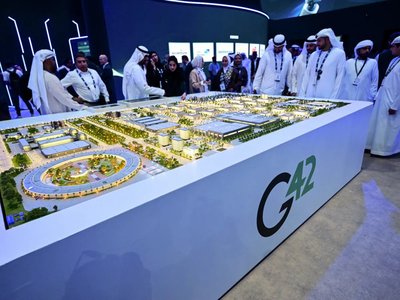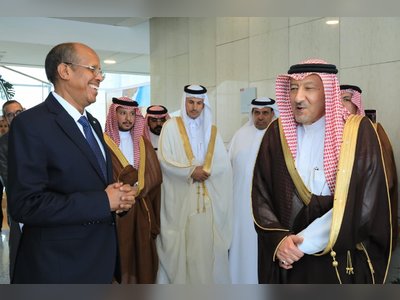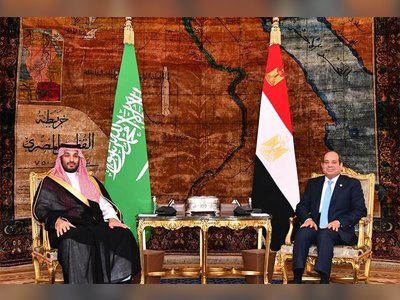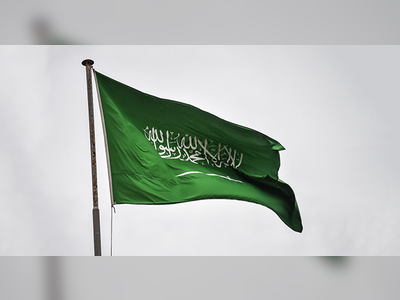
Farming study brings Sudan, Egypt closer amid Nile Dam crisis
Egypt has agreed with Sudan to study a plan to grow crops together on Sudanese land within the framework of economic cooperation between the two countries.
Egypt’s Minister of Supply and Internal Trade Ali al-Moselhi met with Mirghani Idris Soliman, the director of the Sudan’s Military Industry Corporation, in Cairo Aug. 18 and agreed to study the possible leasing of agricultural lands in Sudan.
According to the agreement, the land will be cultivated with sunflowers, soybeans and corn under the direction of the Egyptian Ministry of Supply's Holding Company for Food Industries, supplying edible oils to the Egyptian market and limiting imports. No further details were revealed.
During the meeting, the two officials also agreed to boost cooperation between the two countries in the field of food production, one important area being the provision of livestock by Sudanese company Etegahat.
The agreement comes amid a momentum in the relations between Egypt and Sudan after Egyptian Prime Minister Mustafa Madbouly paid a visit to Khartoum on Aug. 15. The Egyptian and Sudanese positions have converged during the recent rounds of negotiations with Ethiopia over the Grand Ethiopian Renaissance Dam (GERD).
Yaman al-Hamaki, a professor of economics at Ain Shams University in Cairo, told Al-Monitor over the phone, “This agreement represents an important step that will make a difference to the Egyptian and Sudanese economies, and through it, the countries can become a bread basket for Gulf countries that depend on imports. This gives huge growth prospects in both countries.”
Hamaki added, “Both countries have strengths that can be invested in this agreement, as Egypt has technical knowledge in agriculture, experts and modern technology, and Sudan has areas of arable land and abundance of water, which will make the relationship complementary and benefit the two parties at every turn.”
She stressed the need to consider past experiences and study the obstacles that have hindered such agreements, as well as develop a detailed action plan to overcome institutional and procedural problems.
This agreement will most likely hold up in light of Sudan’s rapprochement with Egypt on the GERD crisis, especially after the border tensions that erupted in May between Sudan and Ethiopia, Hamaki added.
According to a report by the State Information Service, Egypt and Sudan have strong commercial relations. Egypt imports from Sudan livestock, sesame seeds, wheat flour, and raw materials, while Sudan imports from Egypt food products, building materials, textiles and medicines. The volume of trade exchange between the two countries reached about $1 billion in 2017, while the volume of Egyptian investments in the Sudanese market was estimated at $10.1 billion and the volume of Sudanese investments in Egypt at $97 million.
Medhat al-Sharif, a member of the parliament’s economic committee, told Al-Monitor over the phone, “The idea of leasing agricultural lands in Sudan has been on the table for some time now. The idea of economic integration between Egypt and Sudan was proposed during the era of late Egyptian President Hosni Mubarak in the 1980s,” adding that some countries he did not name hindered such plans because they would have changed the economic map in the region.
Sharif pointed out, “This agreement is beneficial for both parties, as Egypt suffers from water scarcity regardless of the GERD crisis and there is difficulty in reclaiming desert lands because they require large quantities of water. Sudan has fertile uncultivated lands and enough water to cultivate crops.”
The state report indicated that Sudan has some 84 million hectares (840,000 square kilometers) of arable land, but only 19.3 million hectares (190,000 square kilometers) is being used for agriculture. Sudan also possesses about 24 million hectares (240,000 square kilometers) of pasture land and 64 million hectares (640,000 square kilometers) of forest that could be used in the timber trade and paper industry.
Nader Noureddine, a professor of water resources and land reclamation at Cairo University, told Al-Monitor over the phone, “Egypt has a shortage of basic strategic crops, which is why it relies on imports.” He noted that five types of crops are suitable for agriculture in Sudanese lands, such as yellow corn that is used in livestock and poultry feed, in addition to sunflowers and soybeans for oil.
According to the data from the government-affiliated Central Agency for Public Mobilization and Statistics, soybeans were the top agricultural commodities that Egypt imported in May in terms of value and amounted to about $167.2 million. Egyptian imports of sunflower seeds amounted to $10.7 million and its imported corn amounted to about $111.7 million.
Many countries rent agricultural land to avoid price fluctuations on the world market, Noureddine explained, adding that the agreement is an important step that will have a positive impact on the economy.
According to the agreement, the land will be cultivated with sunflowers, soybeans and corn under the direction of the Egyptian Ministry of Supply's Holding Company for Food Industries, supplying edible oils to the Egyptian market and limiting imports. No further details were revealed.
During the meeting, the two officials also agreed to boost cooperation between the two countries in the field of food production, one important area being the provision of livestock by Sudanese company Etegahat.
The agreement comes amid a momentum in the relations between Egypt and Sudan after Egyptian Prime Minister Mustafa Madbouly paid a visit to Khartoum on Aug. 15. The Egyptian and Sudanese positions have converged during the recent rounds of negotiations with Ethiopia over the Grand Ethiopian Renaissance Dam (GERD).
Yaman al-Hamaki, a professor of economics at Ain Shams University in Cairo, told Al-Monitor over the phone, “This agreement represents an important step that will make a difference to the Egyptian and Sudanese economies, and through it, the countries can become a bread basket for Gulf countries that depend on imports. This gives huge growth prospects in both countries.”
Hamaki added, “Both countries have strengths that can be invested in this agreement, as Egypt has technical knowledge in agriculture, experts and modern technology, and Sudan has areas of arable land and abundance of water, which will make the relationship complementary and benefit the two parties at every turn.”
She stressed the need to consider past experiences and study the obstacles that have hindered such agreements, as well as develop a detailed action plan to overcome institutional and procedural problems.
This agreement will most likely hold up in light of Sudan’s rapprochement with Egypt on the GERD crisis, especially after the border tensions that erupted in May between Sudan and Ethiopia, Hamaki added.
According to a report by the State Information Service, Egypt and Sudan have strong commercial relations. Egypt imports from Sudan livestock, sesame seeds, wheat flour, and raw materials, while Sudan imports from Egypt food products, building materials, textiles and medicines. The volume of trade exchange between the two countries reached about $1 billion in 2017, while the volume of Egyptian investments in the Sudanese market was estimated at $10.1 billion and the volume of Sudanese investments in Egypt at $97 million.
Medhat al-Sharif, a member of the parliament’s economic committee, told Al-Monitor over the phone, “The idea of leasing agricultural lands in Sudan has been on the table for some time now. The idea of economic integration between Egypt and Sudan was proposed during the era of late Egyptian President Hosni Mubarak in the 1980s,” adding that some countries he did not name hindered such plans because they would have changed the economic map in the region.
Sharif pointed out, “This agreement is beneficial for both parties, as Egypt suffers from water scarcity regardless of the GERD crisis and there is difficulty in reclaiming desert lands because they require large quantities of water. Sudan has fertile uncultivated lands and enough water to cultivate crops.”
The state report indicated that Sudan has some 84 million hectares (840,000 square kilometers) of arable land, but only 19.3 million hectares (190,000 square kilometers) is being used for agriculture. Sudan also possesses about 24 million hectares (240,000 square kilometers) of pasture land and 64 million hectares (640,000 square kilometers) of forest that could be used in the timber trade and paper industry.
Nader Noureddine, a professor of water resources and land reclamation at Cairo University, told Al-Monitor over the phone, “Egypt has a shortage of basic strategic crops, which is why it relies on imports.” He noted that five types of crops are suitable for agriculture in Sudanese lands, such as yellow corn that is used in livestock and poultry feed, in addition to sunflowers and soybeans for oil.
According to the data from the government-affiliated Central Agency for Public Mobilization and Statistics, soybeans were the top agricultural commodities that Egypt imported in May in terms of value and amounted to about $167.2 million. Egyptian imports of sunflower seeds amounted to $10.7 million and its imported corn amounted to about $111.7 million.
Many countries rent agricultural land to avoid price fluctuations on the world market, Noureddine explained, adding that the agreement is an important step that will have a positive impact on the economy.











